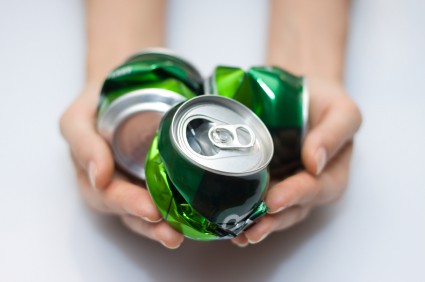
Behind Ralph’s on Overland Avenue and Jefferson Boulevard, in the middle of the parking lot, a small shack that once held Culver City’s only recycling center still stands.
Today, this vestige of California’s largest operator of bottle recycling centers – RePlanet – serves as a roundabout to those coming and going at Studio Village. RePlanet shuttered its remaining 284 locations last August, reducing the number of westside recycling locations to zero.
“RePlanet got a lot of business,” said Catherine Vargas, Environmental Coordinator with the Public Works Department in Culver City.
The closing of RePlanet highlights a greater problem: the closing of recycling centers across the state as labor costs rise and the market rate for recyclables declines.
According to the Container Recycling Institute (CRI), a non-profit based in Culver City that researches recycling, California has lost over half of it’s recycling centers since 2013, down to 1,196 centers from 2,578.
But a new bill in the Senate hopes to remedy the state’s growing recycling desert by putting the burden back into bottle maker’s hands. Senate Bill 372, or the Beverage Recycling Act of 2020, would require companies that produce bottles to build and assume responsibility for recycling centers.
A hearing took place yesterday, January 15, 2020, in Sacramento for SB 372, which, if passed, would require distributors of bottles to establish a beverage container stewardship organization. The law says the organization would be responsible for establishing a recycling program, creating a plan and budget, and would require members – i.e. distributors – to pay a fee to go towards the costs of implementing the program. The bill would go into effect Jan. 1, 2024.
Susan Collins, a resident of Culver City and President of CRI, testified at the hearing. “While we applaud the vision for a new program that would go into place 2024, we’re also very concerned about what would happen to people and their refunds in the intervening four years,” she said. CRI took no stance on the bill.
Culver City is working to turn its recycling desert around. Through a pilot program with California’s Department of Resources Recycling and Recovery, or CalRecycle, the City may provide beverage container redemption sites soon. The pilot program authorizes five projects in jurisdictions, defined as a city or county, to partner with companies to open redemption sites in underserved areas.
Recycling contamination, which happens when non-recyclable items or garbage ends up in recycling bins, is at 35 percent in Culver City. This means some items put in the green bin are never properly recycled.
“There’s been a huge focus on what actually is in the recycling when it comes to the processor,” Vargas said. She continued, “If it goes into a recycling bin and there’s no market for it, it goes into the trash,” Vargas said. Recycling is taken to a processor, where it is sorted and then sold on a market for profit.
Vargas says it is up to the consumer to become educated on what can and can’t go into your city’s recycling, and no two bins are the same. For instance, Los Angeles accepts Polystyrene, a type of plastic, in their recycling, but Culver City does not. “People are placing things in the bin that do not belong there,” Vargas said.
In the meantime, the Public Works Department needs City Council to sign off on it’s application to CalRecycle. Public Works will present their application at the Jan. 27, 2020 City Council meeting for approval.
Elizabeth Moss


Be the first to comment